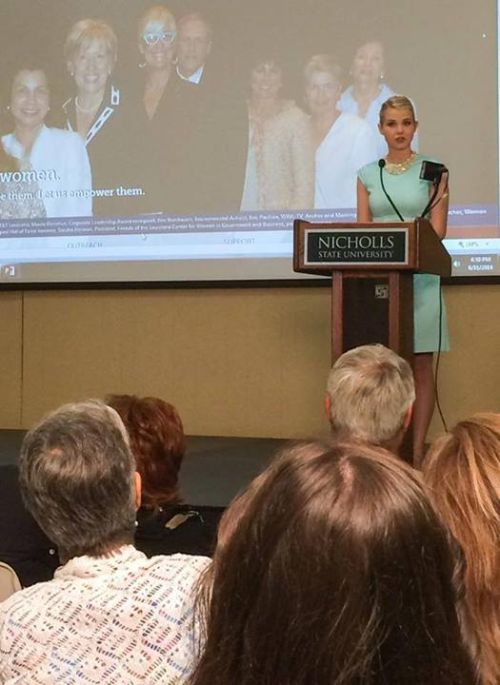
Smart: I am not sorry that it happened
June 17, 2014Approaching Iraq with caution
June 17, 2014That she stood up after being victimized in perhaps the vilest way possible is in itself a quality worth celebrating.
But Elizabeth Smart is doing more than just getting on with her life. She’s leading national discussion on a topic about which most people would rather not think – much less speak.
Smart, as many readers are probably aware, was kidnapped from her bedroom in Salt Lake City, Utah, at the age of 14. She was held captive for nine months. And she was raped.
Now 26, Smart released her memoir “My Story” last year. She co-founded an organization that advocates for child-protection laws, recovery programs and increased awareness of the issues.
Smart addressed an audience at Nicholls State University while keynoting closing ceremonies for the Louisiana Girls Leadership Academy last week. She spliced the heady, first person account of her extraordinary experience with anecdotes that were charming and relatable, showing people in attendance they share commonalities, nonetheless.
That’s not to say she glossed over the nine months that made her famous.
“I remember feeling like there was no reason to continue,” Smart said. “I was broken. I was filthy. I was disgusting. Who could ever want to have anything to do with me ever again?”
To be raped must be a harrowing experience. As a child, to see it coming, is unthinkable. Alone, this act committed against her was horrific. So no one could reasonably blame Smart if she shielded her memories, but she has done the opposite.
That rape victims can feel guilty or shamed is an unconscionable blight on humanity.
Part of the problem is the stigmatization of sex, in general. The more active members of our society are chided, for one example. Another is the relative absence of sexual assault from the mainstream national discourse. Progress has been made in the latter, recently, but there is much more ground to cover.
We need people like Elizabeth Smart to help shatter the perceptions. She can inspire others not only to fight through their own struggles, but to have the courage to talk about topics perceived as taboo. The problem cannot be solved without a diagnosis, and a reluctance to speak honestly and openly about a topic as a society can only obfuscate the truth.





